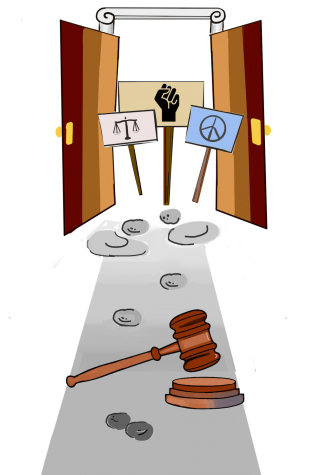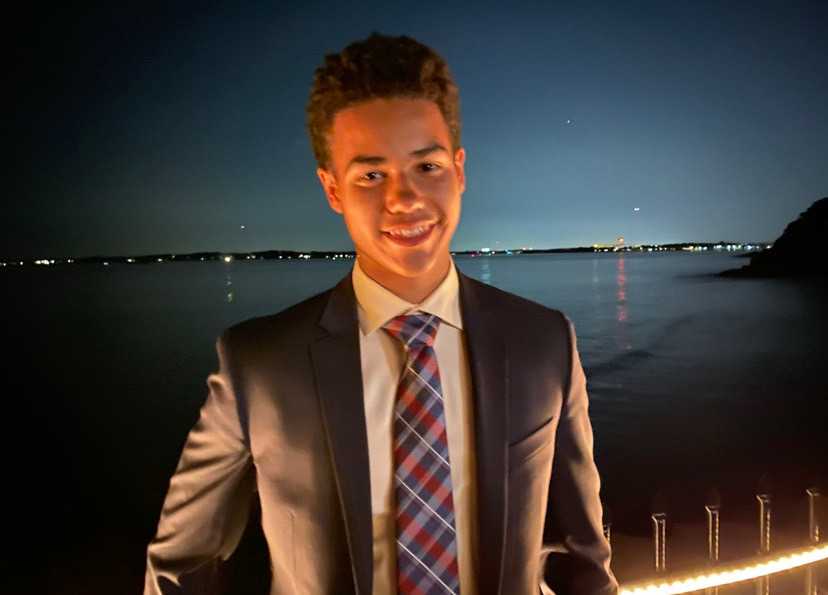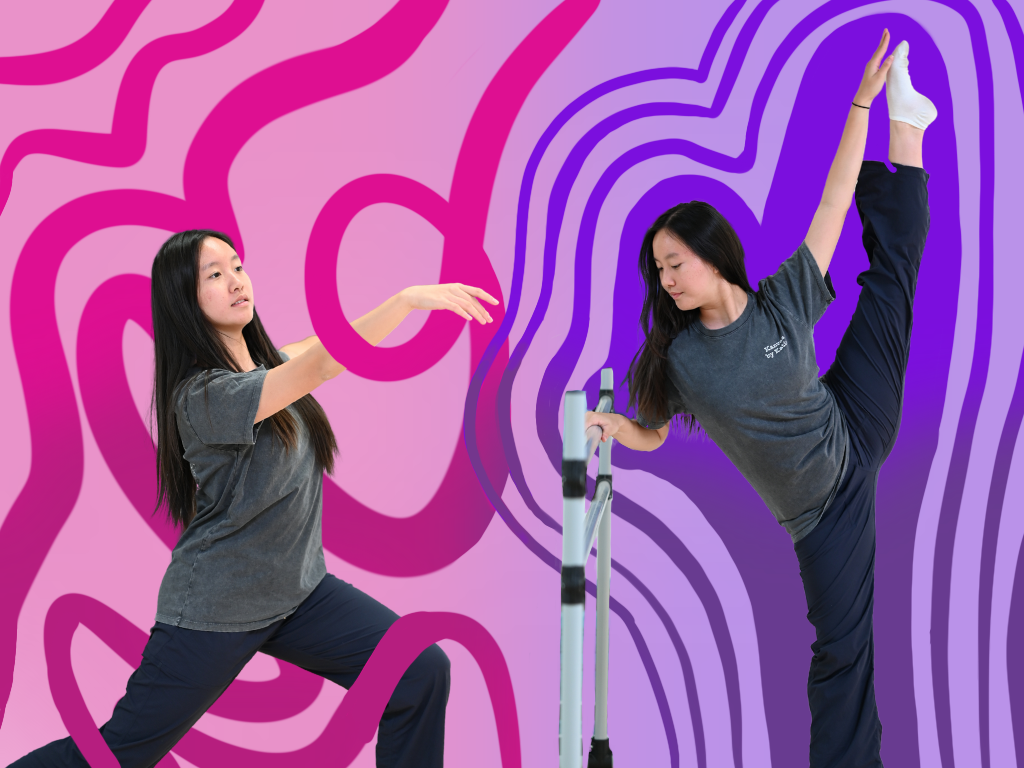Heart of Harker: The necessity of activism
Provided by Brian Pinkston
As a Black man, I strive to be an idealist, yet I am limited by my system of reality, which places me in the firm grasp of invisibility. When I was brought into this world, I had no choice whether I would be seen as the normative, or forever be hyphenated.
September 22, 2020
In this day and age, it seems nearly impossible to be an active citizen in our world without being exposed to many types of media promoting some form of activism. As our signatures are requested for petitions, it can be easy to become desensitized to this barrage of informative slides and causes to donate to, but we must remember to ask ourselves: “what sparked the need for their publication?” It is too simple for us to sit back, provide commentary, and take care of minimal tasks while turning away whenever discomfort presents itself.
But to my fellow activists, I ask you to continue to embrace discomfort and create tension. As the late Dr. Martin Luther King Jr. stated, “There is a type of constructive, nonviolent tension which is necessary for growth.” And that is the final goal of our activism: to create growth and foster change. Substantive activism is not easy, nor by any means is it meant to be. But that is why it is effective. The dedication and commitment that it takes to repeatedly immerse ourselves in uncomfortable situations will inevitably lead to change.
 As a Black man, I strive to be an idealist, yet I am limited by my system of reality, which places me in the firm grasp of invisibility. When I was brought into this world, I had no choice whether I would be seen as the normative, or forever be hyphenated. My identity was given to me, and this began to manifest over many years. Two interactions with my parents, both of whom are idealists limited by the conditions society placed upon them, frequently come to mind in light of current events. The first is too graphic to be given to a school audience, but I feel compelled to share the second.
As a Black man, I strive to be an idealist, yet I am limited by my system of reality, which places me in the firm grasp of invisibility. When I was brought into this world, I had no choice whether I would be seen as the normative, or forever be hyphenated. My identity was given to me, and this began to manifest over many years. Two interactions with my parents, both of whom are idealists limited by the conditions society placed upon them, frequently come to mind in light of current events. The first is too graphic to be given to a school audience, but I feel compelled to share the second.
In the wake of the shooting of Michael Brown, my parents found the strength in themselves to tell me the protocol for police interactions. They explained to me, an 11-year-old Black boy, some police will see me as a threat because of the color of my skin, and few may go out of their way to harass me. They explained that no matter what a cop says, the most important course of action is for me to follow their command. Be light and jovial, yet not too happy. Act servile yet not obsequious; the responsibility rests with you to assess the situation and act perfectly so as to not end up a trending hashtag. Their explanation? Better to go through a court than to be dead.
This experience is unfortunately all too familiar to Black children. I am still appreciative of my parents’ choice to educate me on the reality of the situation, yet ideally, these conversations would become archaic, no longer serving a purpose in an ideal society.
The news of the deaths of Breonna Taylor and George Floyd are shocking, yet all too familiar. They echo the names of Michael Brown and Eric Garner, the same proclamations of ‘not guilty’, the same gasps for air as they struggled to say these three words: “I can’t breathe.” When cries for help start to be recycled by similar victims of police brutality, there is an ever-increasing need for activists.
This is why I fight. This is why we fight. This is why the movement known as Black Lives Matter exists. The world we live in is not perfect, it is rather far from it. We may never achieve our ideal utopia, but through the collective actions of individual activists, we will continue to knock on the door of equality.


















![“[Building nerf blasters] became this outlet of creativity for me that hasn't been matched by anything else. The process [of] making a build complete to your desire is such a painstakingly difficult process, but I've had to learn from [the skills needed from] soldering to proper painting. There's so many different options for everything, if you think about it, it exists. The best part is [that] if it doesn't exist, you can build it yourself," Ishaan Parate said.](https://harkeraquila.com/wp-content/uploads/2022/08/DSC_8149-900x604.jpg)




![“When I came into high school, I was ready to be a follower. But DECA was a game changer for me. It helped me overcome my fear of public speaking, and it's played such a major role in who I've become today. To be able to successfully lead a chapter of 150 students, an officer team and be one of the upperclassmen I once really admired is something I'm [really] proud of,” Anvitha Tummala ('21) said.](https://harkeraquila.com/wp-content/uploads/2021/07/Screen-Shot-2021-07-25-at-9.50.05-AM-900x594.png)







![“I think getting up in the morning and having a sense of purpose [is exciting]. I think without a certain amount of drive, life is kind of obsolete and mundane, and I think having that every single day is what makes each day unique and kind of makes life exciting,” Neymika Jain (12) said.](https://harkeraquila.com/wp-content/uploads/2017/06/Screen-Shot-2017-06-03-at-4.54.16-PM.png)








![“My slogan is ‘slow feet, don’t eat, and I’m hungry.’ You need to run fast to get where you are–you aren't going to get those championships if you aren't fast,” Angel Cervantes (12) said. “I want to do well in school on my tests and in track and win championships for my team. I live by that, [and] I can do that anywhere: in the classroom or on the field.”](https://harkeraquila.com/wp-content/uploads/2018/06/DSC5146-900x601.jpg)
![“[Volleyball has] taught me how to fall correctly, and another thing it taught is that you don’t have to be the best at something to be good at it. If you just hit the ball in a smart way, then it still scores points and you’re good at it. You could be a background player and still make a much bigger impact on the team than you would think,” Anya Gert (’20) said.](https://harkeraquila.com/wp-content/uploads/2020/06/AnnaGert_JinTuan_HoHPhotoEdited-600x900.jpeg)

![“I'm not nearly there yet, but [my confidence has] definitely been getting better since I was pretty shy and timid coming into Harker my freshman year. I know that there's a lot of people that are really confident in what they do, and I really admire them. Everyone's so driven and that has really pushed me to kind of try to find my own place in high school and be more confident,” Alyssa Huang (’20) said.](https://harkeraquila.com/wp-content/uploads/2020/06/AlyssaHuang_EmilyChen_HoHPhoto-900x749.jpeg)










